
Kód: 04938933
Theodor W. Adorno
Autor Gerhard Schweppenhauser
Theodor W. Adorno (1903-1969) was one of the twentieth century's most important thinkers. Seeking to synthesize the essential insights of Western philosophy, Adorno revisited the ethical and sociological arguments of his predecess ... celý popis
- Jazyk:
 Angličtina
Angličtina - Vazba: Pevná
- Počet stran: 200
Nakladatelství: Duke University Press, 2009
- Více informací o knize

3301 Kč
Dostupnost:
50 % šance Máme informaci, že by titul mohl být dostupný. Na základě vaší objednávky se ho pokusíme do 6 týdnů zajistit.
Máme informaci, že by titul mohl být dostupný. Na základě vaší objednávky se ho pokusíme do 6 týdnů zajistit.Prohledáme celý svět
Mohlo by se vám také líbit
Dárkový poukaz: Radost zaručena
- Darujte poukaz v libovolné hodnotě a my se postaráme o zbytek.
- Poukaz se vztahuje na celou naši nabídku.
- Elektronický poukaz vytisknete z e-mailu a můžete ihned darovat.
- Platnost poukazu je 12 měsíců od data vystavení.
Informovat o naskladnění knihy
Zadejte do formuláře e-mailovou adresu a jakmile knihu naskladníme, zašleme vám o tom zprávu. Pohlídáme vše za vás.
Více informací o knize Theodor W. Adorno
Nákupem získáte 330 bodů
 Anotace knihy
Anotace knihy
Theodor W. Adorno (1903-1969) was one of the twentieth century's most important thinkers. Seeking to synthesize the essential insights of Western philosophy, Adorno revisited the ethical and sociological arguments of his predecessors - Kant, Hegel, Marx, Nietzsche, and Walter Benjamin - in light of two pivotal twentieth-century developments: the rise of fascism, which culminated in the Holocaust, and the standardization of "popular" culture as a commodity indispensable to contemporary capitalism. This volume, first published in Germany in 1996, provides a succinct introduction to Adorno's challenging and far-reaching thought. Gerhard Schweppenhauser, a leading German scholar of the Frankfurt School of critical theory (whose members included Adorno, Benjamin, and Horkheimer), explains Adorno's epistemology, social and political philosophy, aesthetics, and theory of culture. After providing a brief overview of Adorno's life, Schweppenhauser turns to the theorist's core philosophical concepts, including post-Kantian critique, determined negation, and the primacy of the object, as well as his view of the Enlightenment as a code for world domination, his diagnosis of modern mass culture as a program of social control, and his understanding of modernist aesthetics as a challenge to conceive an alternative politics. Along the way, Schweppenhauser illuminates the works widely considered Adorno's most important achievements: Minima Moralia, Dialectic of Enlightenment (co-authored with Horkheimer), and Negative Dialectics. Adorno wrote much of the first two of these during his years in California (1938-49), where he lived near Arnold Schoenberg and Thomas Mann, whom he assisted with the musical aesthetics at the centre of Mann's novel Doctor Faustus. Expanding on the German edition, this volume includes additional information about Adorno's philosophy of music and more analysis of Benjamin's influence on his theory of art and mass culture.
 Parametry knihy
Parametry knihy
Zařazení knihy Knihy v angličtině Humanities Philosophy History of Western philosophy
3301 Kč
- Plný název: Theodor W. Adorno
- Podnázev: An Introduction
- Autor: Gerhard Schweppenhauser
- Jazyk:
 Angličtina
Angličtina - Vazba: Pevná
- Počet stran: 200
- EAN: 9780822344544
- ISBN: 0822344548
- ID: 04938933
- Nakladatelství: Duke University Press
- Hmotnost: 431 g
- Rozměry: 224 × 160 × 20 mm
- Datum vydání: 06. April 2009
Oblíbené z jiného soudku
-

Meditations
257 Kč -

The Myth of Sisyphus
169 Kč -

Why I Am so Clever
91 Kč -

Meditations
410 Kč -

Republic
282 Kč -

Beyond Good and Evil
258 Kč -

Gay Science
342 Kč -

Aphorisms on Love and Hate
90 Kč -

Beyond Good & Evil
355 Kč -

Meditations on First Philosophy
256 Kč -
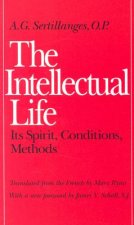
Intellectual Life
454 Kč -

Socrates' Defence
90 Kč -

Discourses, Fragments, Handbook
306 Kč -

Ride the Tiger
684 Kč -

Thus Spoke Zarathustra
286 Kč -

Fear and Trembling
276 Kč -

Birth of Tragedy
90 Kč -
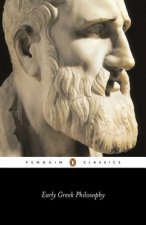
Early Greek Philosophy
357 Kč -

Groundwork for the Metaphysics of Morals
276 Kč -
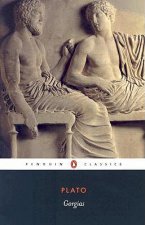
Gorgias
232 Kč -
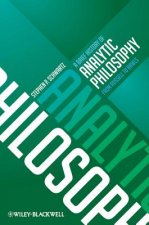
Brief History of Analytic Philosophy - From Russell to Rawls
955 Kč -

On Duties
322 Kč -

Discourses and Selected Writings
306 Kč -

Nicomachean Ethics
136 Kč -

Nausea
276 Kč -

Letters from a Stoic
276 Kč -

Meditations
505 Kč -

Simulacra and Simulation
416 Kč -

Phenomenology of Spirit
987 Kč -

Twilight of the Idols with The Antichrist and Ecce Homo
136 Kč -

On Liberty, Utilitarianism and Other Essays
223 Kč -
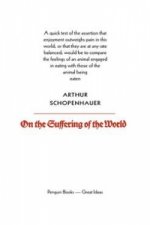
On the Suffering of the World
196 Kč -

Human Condition
514 Kč -

On the Shortness of Life
234 Kč -

Existentialism Is a Humanism
212 Kč -

Think
324 Kč -

Guide to the Good Life
434 Kč -
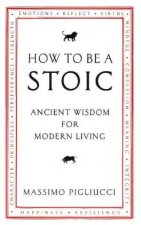
How To Be A Stoic
441 Kč -

The Symposium
235 Kč -

Human, All Too Human & Beyond Good and Evil
136 Kč -

At The Existentialist Cafe
277 Kč -

Undiscovered Self
708 Kč -
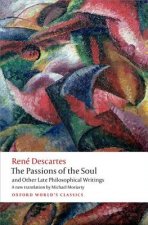
Passions of the Soul and Other Late Philosophical Writings
361 Kč -

The Trouble With Being Born
306 Kč -

Leviathan
136 Kč -
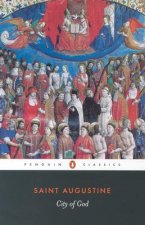
City of God
452 Kč -

Ecce Homo
249 Kč -
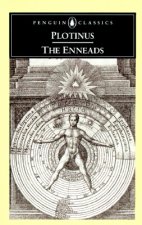
Enneads
382 Kč -

On Friendship
196 Kč
Osobní odběr Praha, Brno a 12903 dalších
Copyright ©2008-24 nejlevnejsi-knihy.cz Všechna práva vyhrazenaSoukromíCookies







 Vrácení do měsíce
Vrácení do měsíce 571 999 099 (8-15.30h)
571 999 099 (8-15.30h)